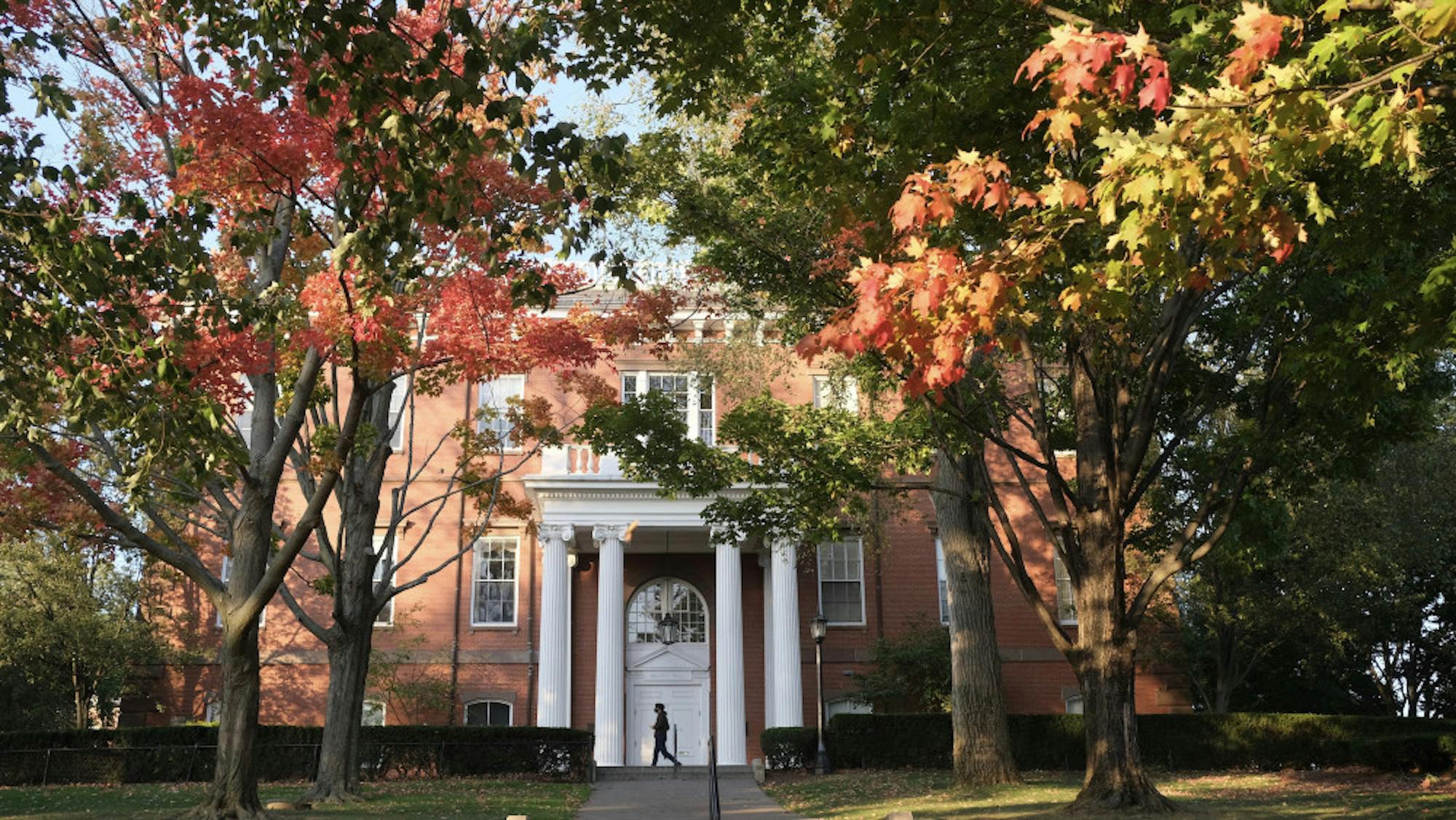Tufts conducted its first ever Diversity, Equity and Inclusion Campus Climate Survey in the spring of 2022, with 4,717 respondents completing the survey. The results were published in a report released in December 2022 and were announced on Jan. 23.
The survey group was comprised of students, faculty, post-doctoral scholars and staff, with a response rate of 29%. The goal of this survey was to gain insight into the experiences of different demographics that make up the Tufts community and identify opportunities for change. Notably, members of underrepresented communities had less favorable experiences than the majority of respondents regarding the climate of Tufts, their sense of belonging and experiences of discrimination.
In the Jan. 23 announcement, Provost Caroline Genco statedthe purpose of this survey was to examine opportunities for growth and progress.
“At Tufts, we aim to create an environment that welcomes and supports community members of all backgrounds, identities, abilities, beliefs, and perspectives,” the statement read. “Based on what we already know from the initial survey findings, however, we need to acknowledge that we fall short of our expectations in some key areas. We must work together, with support and sponsorship from leaders across the university, to achieve the kind of equitable, inclusive experience every Tufts community member deserves.”
In the demographic report, most respondents were affiliated with the School of Arts and Sciences (34%), the School of Engineering (12.2%) or Central Administration (11%). 57.8% identified as women, 35.7% identified as men and 3.2% identified as genderqueer/gender non-conforming.
Additionally, 66.9% of respondents identified as White or European American (includes Middle Eastern), with 9.6% identifying as East Asian/East Asian American, 8.5% identifying as Hispanic/Latinx, 8.2% as Black/African American/Afro-Caribbean, and 4.9% as South Asian/South Asian American.
When asked about sexual orientation, 70.1% of respondents indicated that they were heterosexual, while 7.8% indicated bisexual and 3.5% indicated queer on the survey; 7.6% of respondents declined to answer, while 3.1% identified as gay, 2.5% as asexual and 1.7% as lesbian, among other identities.
11.3% of respondents indicated they had a disability, and 15.8% identified themselves as first-generation college students.
Genco explained in an email to the Daily that the information in the results of the survey was primarily based on self-reported demographics, which were compared to known statistics of the Tufts community.
“The known demographics of the Tufts population is limited to race/ethnicity and gender,” Genco wrote. “Also, because this was an anonymous survey, our ability to look at the demographics of survey recipients is limited, as none of this information was embedded in the contact list. This configuration was done purposely to preserve anonymity of the survey respondents.”
While 71% of survey participants indicated that they were “very satisfied” or “somewhat satisfied” with the overall campus climate (with regards to its academic/professional, social and racial aspects), 16% answered that they were “dissatisfied” or “very dissatisfied.”
Many respondents from this group belonged to historically underrepresented communities: genderqueer/gender non-conforming (34%); American Indian or Indigenous (28%), Middle Eastern, North African or Arab (22%); Black, African American or Afro-Caribbean (20%) and Hispanic or Latinx (19%). These groups were also disproportionately part of the 16% of respondents who expressed that they felt like they belonged at Tufts “to a minimal extent” or “not at all.”
Some groups reported that they had experienced disparaging remarks or intimidating behavior towards members of certain demographics “frequently, several times, a couple times, or on one occasion.” The largest group was people with conservative political views (55%), followed by women (36%), members of racial or ethnic minorities (33%), people with larger body types or sizes (30%) and people who speak English as a second language (29%). The results also noted that members of these demographics were “more likely to report having witnessed disparaging remarks or offensive or intimidating behavior towards members of that demographic group, compared to respondents who were not a part of this demographic group.”
Genco shared that the dissemination of these results is the first step in the university’s communications regarding diversity, equity and inclusion at Tufts.
“More information about the results will be shared in the coming months and both the schools and the university will be engaging the community on the targeted actions that we need to take to improve the campus climate,” she wrote. “In other words, we want to develop the action plan in partnership with the community after engaging the community in an open dialogue about the results.”
Tufts’ Office of the Vice Provost, Office of Institutional Research and faculty will be partnering with an external data research and assessment firm to analyze the results and prepare a report by the fall semester of this year. School deans and deans of diversity and inclusion have begun to examine data and develop school-oriented responses. More information about Tufts’ advancing DEI work will be communicated later this semester.






